War in Cities: Tripoli, Libya
… they use for things like cleaning the car or jobs around the house. This man was just …
… they use for things like cleaning the car or jobs around the house. This man was just …
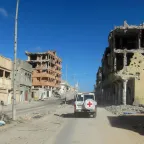
Across Africa’s Sahel region people are enduring ever-increasing levels of violence. While conflict dominates headlines, climate change adds a second pernicious dimension to the mix. Lemba Bisimwa, …

… face the risk of losing their homes, their jobs and ties with their family and community. … of these displaced women were given part-time jobs in nurseries, thanks to an agreement with …
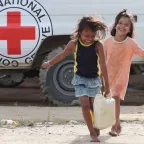
There was nothing significantly different about 8 October 2005. It was just another day of running errands, doing chores at home, going to school, writing a test, working the fields, etc. Then the …

This is a summary of the final report of the evaluation of the Support Relationships in Armed Conflicts Initiative (SRI), a five-year strategy (2019-2023) aimed at broadening the ICRC's engagement …
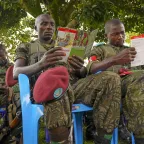
In a social media age when each of us can denounce violations, ICRC's confidential approach saves lives. The ICRC works on the ground in conflict zones. We provide people caught up in the fighting …
As we mark two years since the escalation of the Russia-Ukraine armed conflict, people affected by ongoing hostilities share stories of resilience, despite the profound impact on their lives, …
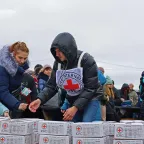
… realities of restricted movement, disrupted jobs and education, and the ongoing threat to …
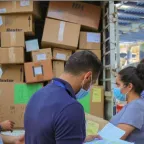
… of the private sector and the creation of jobs, which further exacerbates the overall …
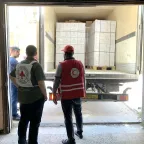
For over 40 years, the International Committee of the Red Cross (ICRC) has been working in Afghanistan, with a permanent delegation in Kabul established in 1987. The ICRC works closely with its …
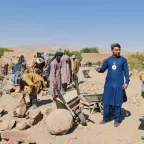
Try one of the following resources:
Created in 1863, the ICRC library, alongside the ICRC archives, provides an indispensable documentary reference on the organization itself and international humanitarian law.
International humanitarian law is based on a number of treaties, in particular the Geneva Conventions of 1949 and their Additional Protocols, and a series of other instruments.
Customary international humanitarian law consists of rules that come from "a general practice accepted as law" and that exist independent of treaty law.